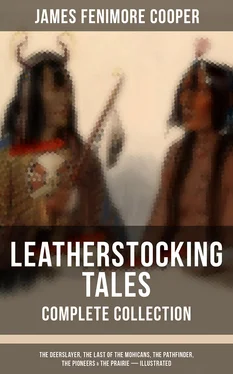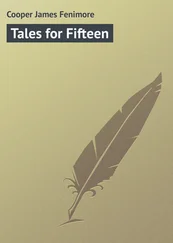Before the, appearance of his Jack Tier , Cooper published, in 1845 and the following year, a series of novels relating to the Anti-rent question, in which he took great interest. He thought that the disposition manifested in certain quarters to make con cessions, to what he deemed a denial of the rights of property was a first step in a most dangerous path. To discourage this disposition, he wrote Satanstoe, The Chainbearer, and The Redskins . They are didactic in their design, and want the freedom of invention which belongs to Cooper’s best novels; but if they had been written by anybody but Cooper,—by a member of Congress, for example, or an eminent politician of any class,—they would have made his reputation. It was said, I am told, by a distinguished jurist of our state, that they entitled the author to as high a place in law as his other works had won for him in literature.
I had thought, in meditating the plan of this discourse, to mention all the works of Mr. Cooper, but the length to which I have found it extending has induced me to pass over several written in the last ten years of his life, and to confine myself to those which best illustrate his literary character. The last of his novels was The Ways of the Hour , a work in which the objections he entertained to the trial by jury in civil causes were stated in the form of a narrative.
It is a voluminous catalogue—that of Cooper’s published works—but it comprises not all he wrote. He committed to the fire, without remorse, many of the fruits of his literary industry. It was understood, some years since, that he had a work ready for the press on the Middle States of the Union , principally illustrative of their social history; but it has not been found among his manuscripts, and the presumption is that he must have destroyed it. He had planned a work on the Towns of Manhattan , for the publication of which he made arrangements with Mr. Putnam of this city, and a part of which, already written, was in press at the time of his death. The printed part has since been destroyed by fire, but a portion of the manuscript was recovered. The work, I learn, will be completed by one of the family, who, within a few years past, has earned an honorable name among the authors of our country. Great as was the number of his works, and great as was the favor with which they were received, the pecuniary rewards of his success were far less than has been generally supposed—scarcely, as I am informed, a tenth part of what the common rumor made them. His fame was infinitely the largest acknowledgment which this most successful of American authors received for his labors.
The Ways of the Hour appeared in 1850. At this time his personal appearance was remarkable. He seemed in perfect health, and in the highest energy and activity of his faculties. I have scarcely seen any man at that period of life on whom his years sat more lightly. His conversation had lost none of its liveliness, though it seemed somewhat more genial and forbearing in tone, and his spirits none of their elasticity. He was contemplating, I have since been told, another Leatherstocking tale, deeming that he had not yet exhausted the character; and those who consider what new resources it yielded him in the Pathfinder and the Deerslayer , will readily conclude that he was not mistaken.
The disease, however, by which he was removed, was even then impending over him, and not long afterwards his friends here were grieved to learn that his health was declining. He came to New York so changed that they looked at him with sorrow, and after a stay of some weeks, partly for the benefits of medical advice returned to Cooperstown, to leave it no more. His complaint gradually gained strength, subdued a constitution originally robust, and finally passed into a confirmed dropsy. In August, 1851, he was visited by his excellent and learned friend, Dr. Francis, a member of the weekly club which he had founded in the early part of his literary career. He found him bearing the sufferings of his disease with manly firmness, gave him such medical counsels as the malady appeared to require, prepared him delicately for its fatal termination, and returned to New York with the most melancholy anticipations. In a few days afterwards, Cooper expired, amid the deep affliction of his family, on the 14th of September, the day before that on which he should have completed his sixty-second year. He died, apparently without pain, in peace and religious hope. The relations of man to his Maker, and to that state of being for which the present is but a preparation, had occupied much of his thoughts during his whole lifetime, and he crossed, with a serene composure, the mysterious boundary which divides this life from the next.
The departure of such a man, in the full strength of his faculties,—on whom the country had for thirty years looked as one of the permanent ornaments of its literature, and whose name had been so often associated with praise, with renown, with controversy, with blame, but never with death,—diffused a universal awe. It was as if an earthquake had shaken the ground on which we stood, and showed the grave opening by our path. In the general grief for his loss, his virtues only were remembered; and his failings forgotten.
Of his failings I have said little; such as he had were obvious to all the world; they lay on the surface of his character; those who knew him least made the most account of them. With a character so made up of positive qualities—a character so independent and uncompromising, and with a sensitiveness far more acute than he was willing to acknowledge, it is not surprising that occasions frequently arose to bring him, sometimes into friendly collision, and sometimes in to graver disagreements and misunderstandings with his fellow-men. For his infirmities, his friends found an ample counterpoise in the generous sincerity of his nature. He never thought of disguising his opinions, and he abhorred all disguise in others; he did not even deign to use that show of regard towards those of whom he did not think well, which the world tolerates, and almost demands. A manly expression of opinion, however different from his own, commanded his respect. Of his own works, he spoke with the same freedom as of the works of others; and never hesitated to express his judgment of a book for the reason that it was written by himself: yet he could bear with gentleness any dissent from the estimate lie placed on his own writings. His character was like the bark of the cinnamon, a rough and astringent rind without, and an intense sweetness within. Those who penetrated below the surface found a genial temper, warm affections, and a heart with ample place for his friends, their pursuits, their good name, their welfare. They found him a philanthropist, though not precisely after the fashion of the day; a religious man, most devout where devotion is most apt to be a feeling rather than a custom, in the household circle; hospitable, and to the extent of his means liberal-handed in acts of charity. They found, also, that though in general he would as soon have thought of giving up an old friend as of giving up an opinion, he was not proof against testimony, and could part with a mistaken opinion as one parts with an old friend who has been proved faithless and unworthy. In short, Cooper was one of those who, to be loved, must be intimately known.
Of his literary character I have spoken largely in the narrative of his life, but there are yet one or two remarks which must be made to do it justice. In that way of writing in which he excelled, it seems to me that he united, in a pre-eminent degree, those qualities which enabled him to interest the largest number of readers. He wrote not for the fastidious, the over-refined, the morbidly delicate; for these find in his genius something too robust for their liking—something by which their sensibilities are too rudely shaken; but he wrote for mankind at large—for men and women in the ordinary healthful state of feeling—and in their admiration he found his reward. It is for this class that public libraries are obliged to provide themselves with an extraordinary number of copies of his works: the number in the Mercantile Library in this city, I am told, is forty. Hence it is, that he has earned a fame, wider, I think, than any author of modern times—wider, certainly, than any author, of any age, ever enjoyed in his lifetime. All his excellences are translatable—they pass readily into languages the least allied in their genius to that in which he wrote, and in them he touches the heart and kindles the imagination with the same power as in the original English.
Читать дальше












